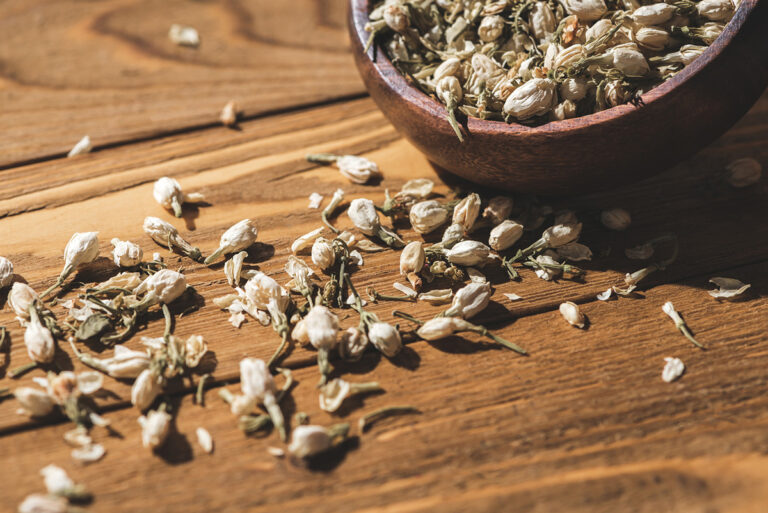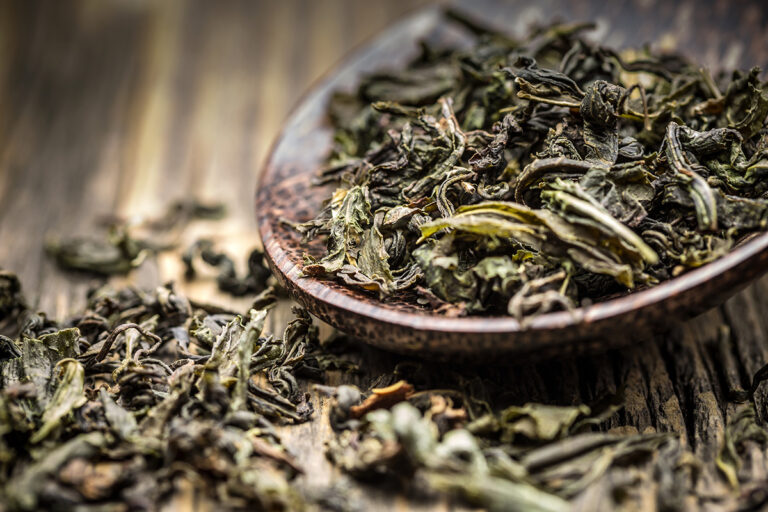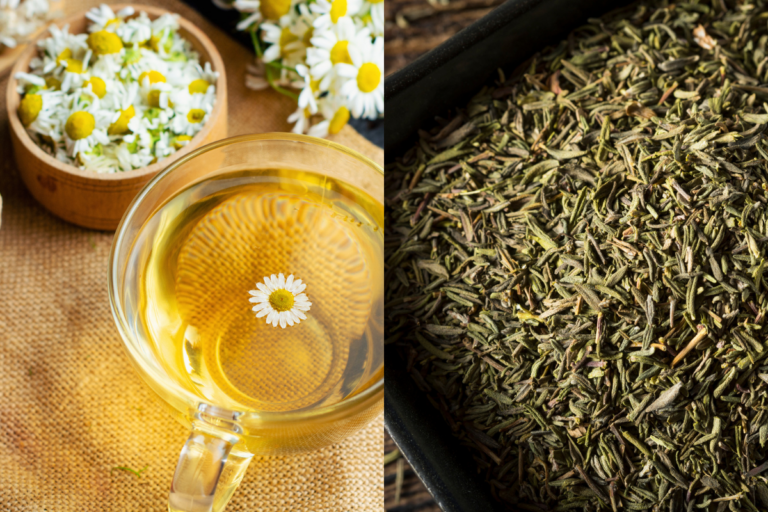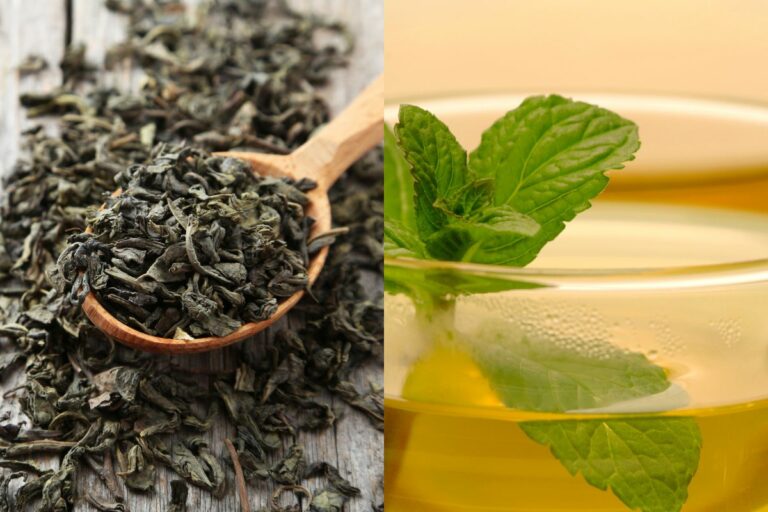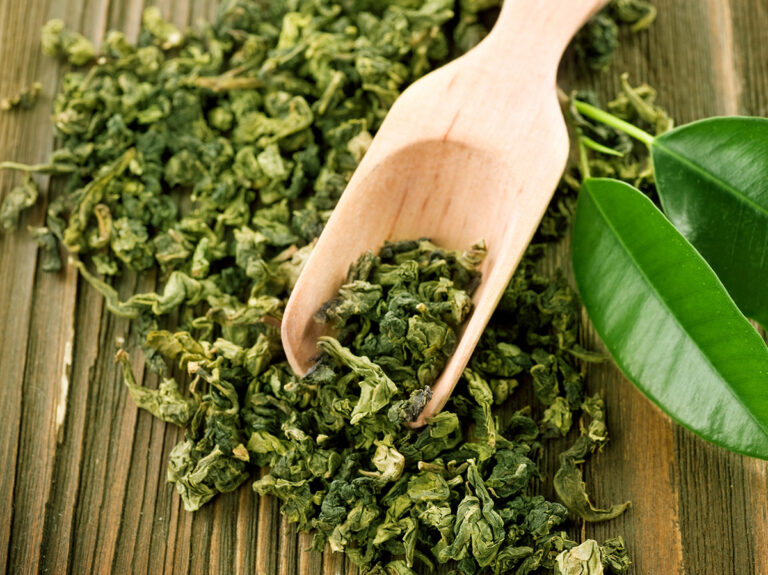Jasmine Tea vs. Green Tea: What’s the Difference?
While you may have heard of both jasmine and green tea, understanding the differences can be perplexing. The nuances that set these two types apart range from flavor profiles to health benefits and brewing techniques.
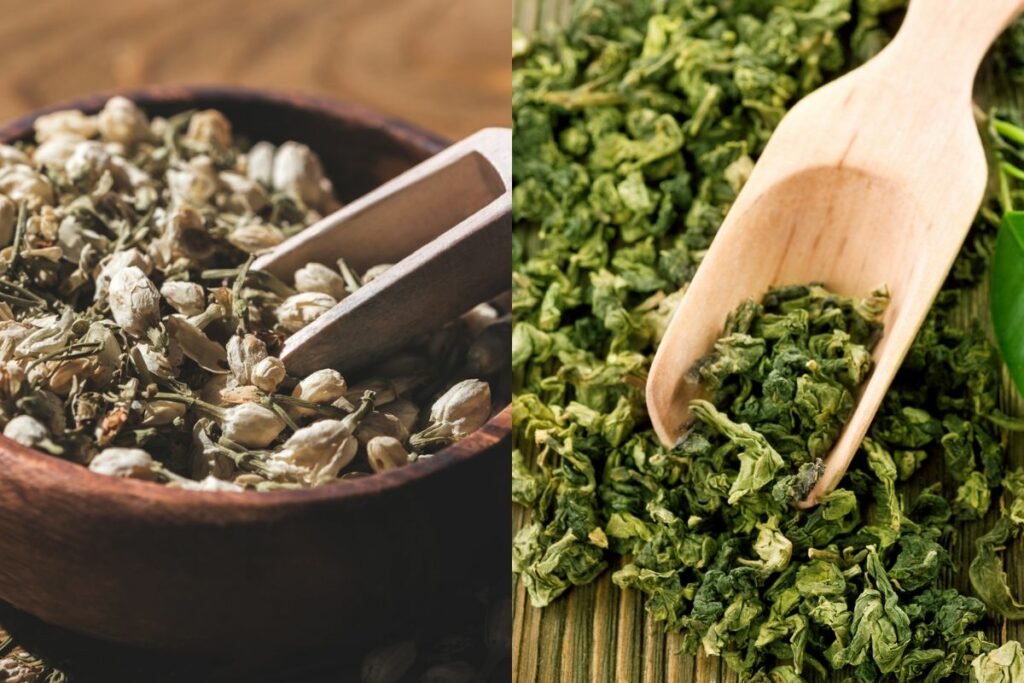
What Is Jasmine Tea?
Jasmine tea is a fragrant brew known for its aromatic scent and delicate flavor. Originating from China, it’s traditionally created by combining jasmine flowers with tea leaves. The tea base can vary and is often green, but white or black tea may also be used. The tea absorbs the jasmine scent during the process, resulting in a subtly sweet and highly aromatic beverage.
What Is Green Tea?
Green tea is made from the leaves and buds of the Camellia sinensis plant, not undergoing the withering and oxidation processes used for oolong and black teas. It’s renowned for its health benefits, including high antioxidant content. Unlike jasmine tea, which is scented with jasmine flowers, pure green tea is unscented, deriving its flavor solely from the tea leaves.
Is Jasmine Tea the Same as Green Tea?
Although jasmine tea often uses a green tea base, it is not the same as green tea. The primary distinction is the inclusion of jasmine flowers, which impart a unique floral aroma and flavor to the tea. While both are rich in antioxidants, the sensory experience and the nuances in health benefits set them apart.
The Differences Between Jasmine Tea and Green Tea
There are several key differences between jasmine and green tea:
- Flavor Profile: Jasmine tea is known for its floral and subtly sweet flavor due to the infusion of jasmine flowers, while green tea has a more earthy, grassy taste.
- Aroma: Jasmine tea carries the intense, fragrant aroma of jasmine flowers. In contrast, green tea has a fresh and natural scent without added fragrances.
- Health Benefits: While both teas are antioxidant-rich, jasmine tea is known for its calming properties and green tea for its metabolism-boosting benefits.
- Production Process: Jasmine tea undergoes a scenting process with jasmine flowers, while green tea is processed directly from the harvested leaves.
- Caffeine Content: Green tea generally contains more caffeine than jasmine tea, but the caffeine content in jasmine tea can vary depending on the tea base used.
Is Jasmine Tea More Beneficial Than Green Tea?
Neither jasmine nor green tea can be categorized as more beneficial than the other. Both offer a range of health benefits, and the “better” choice largely depends on individual preferences and health goals. For instance, with its calming properties, jasmine tea is a great relaxation choice. On the other hand, green tea’s metabolism-boosting effects might be more attractive to those focusing on weight management or digestive health.
Best Jasmine Teas to Consider
We have tried an array of jasmine teas in both tea bags and loose-leaf forms, with green and white teas as the base. These are the best options in each category.
If you prefer green tea to jasmine tea, these are our top picks.
Final Thoughts
While jasmine tea and green tea share some commonalities, their differences in flavor, aroma, production process, and health benefits set them apart. Your preference will ultimately depend on your tastes and wellness goals. Both teas offer various benefits and delightful flavors, making them wonderful additions to any tea lover’s collection.
FAQ
Is It Ok to Drink Jasmine Tea Every Day?
Yes, it’s generally safe to drink jasmine tea daily. It contains antioxidants and can aid in relaxation.
Is Jasmine Tea or Green Tea Better for Weight Loss?
Both teas can aid in weight loss as they are low in calories and high in antioxidants. However, green tea is more often associated with weight loss due to its potential to boost metabolism. That said, the most effective weight loss strategies incorporate a balanced diet and regular exercise, with tea as a healthy addition.

